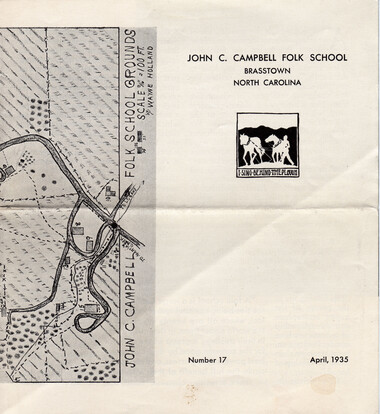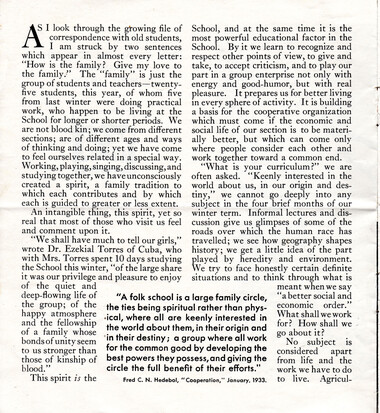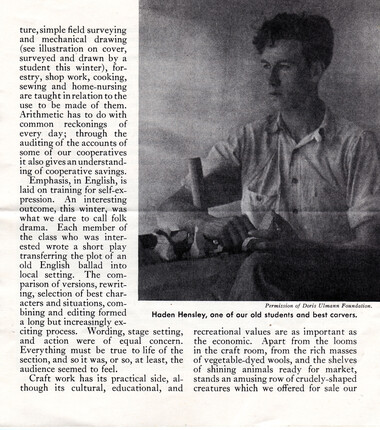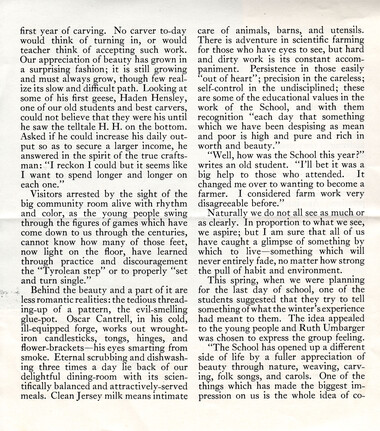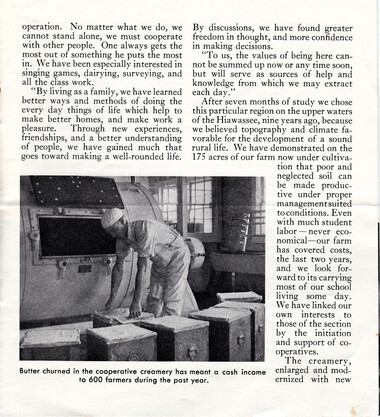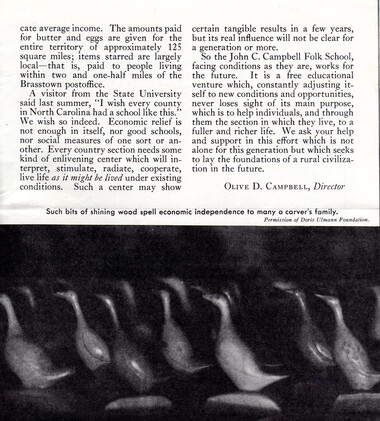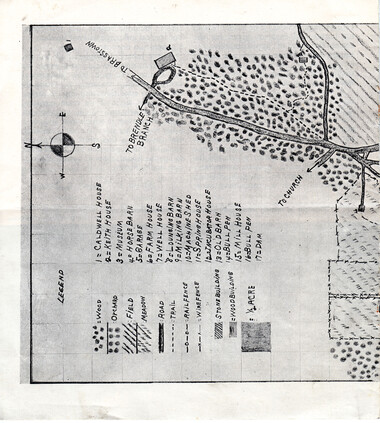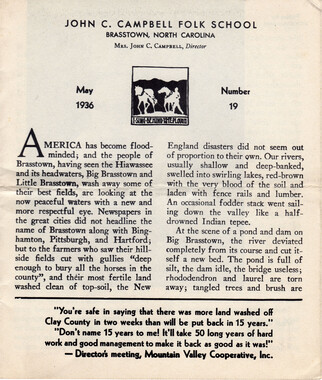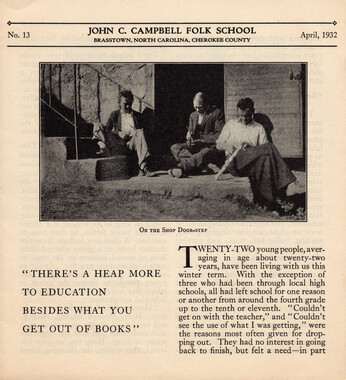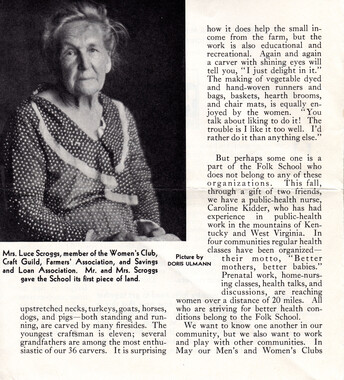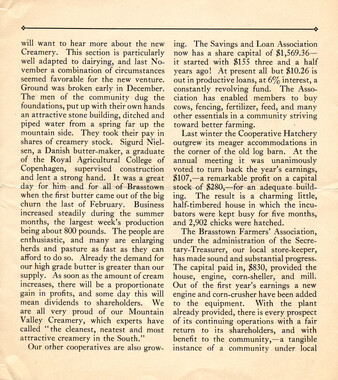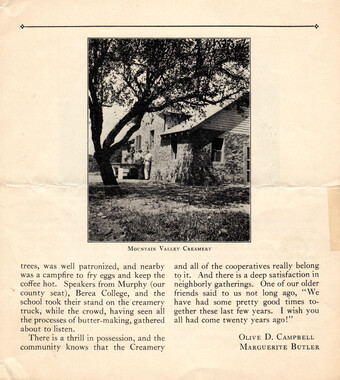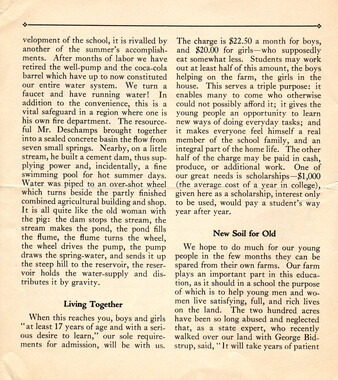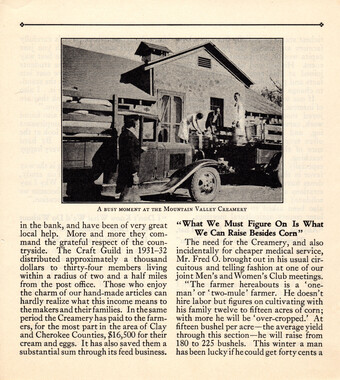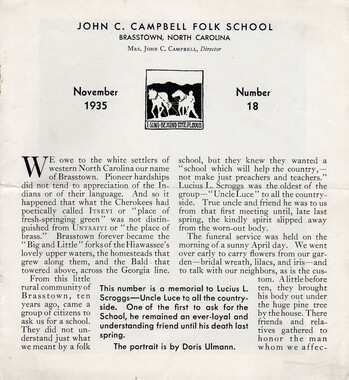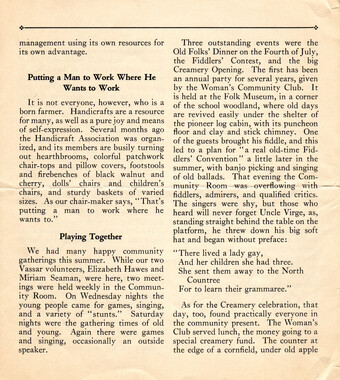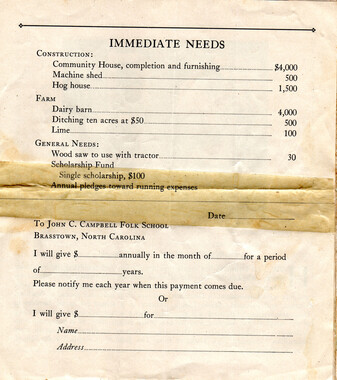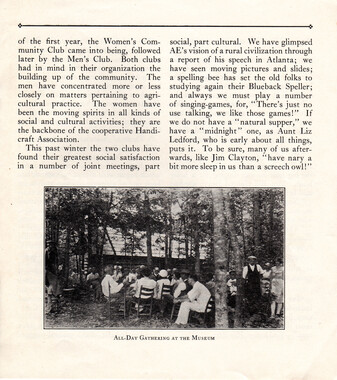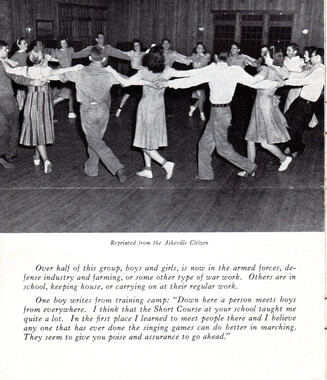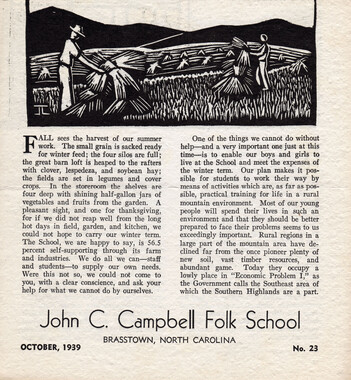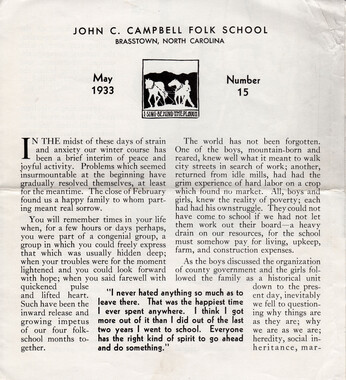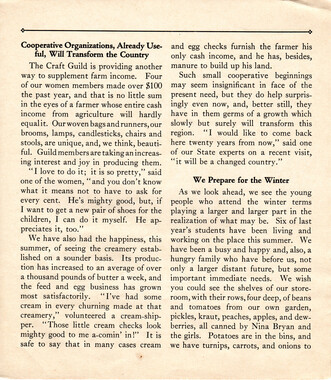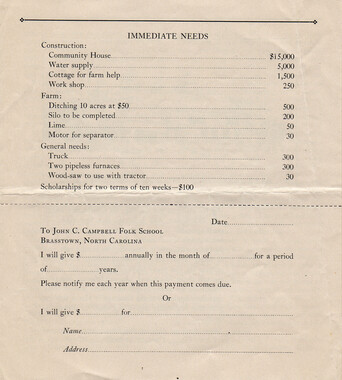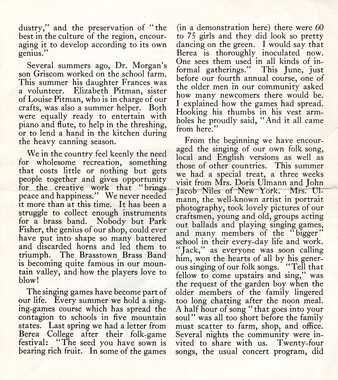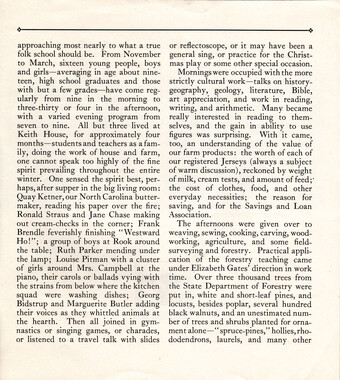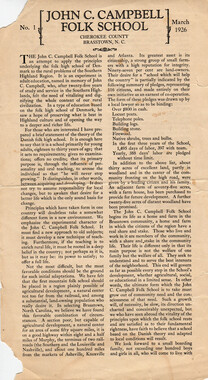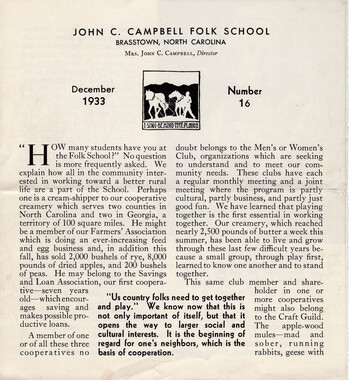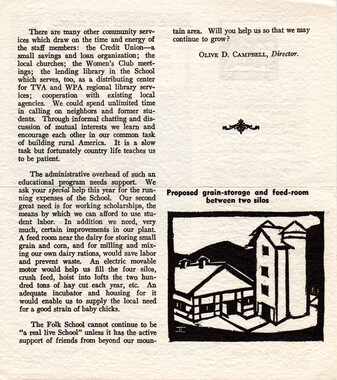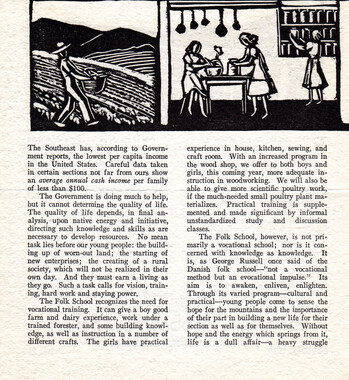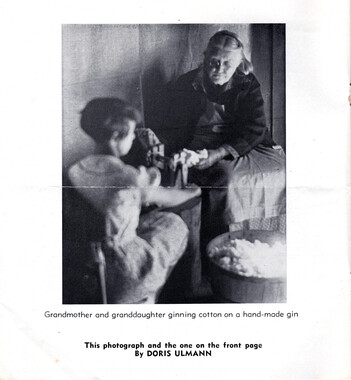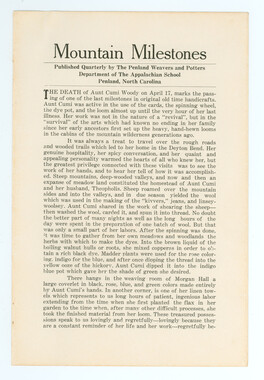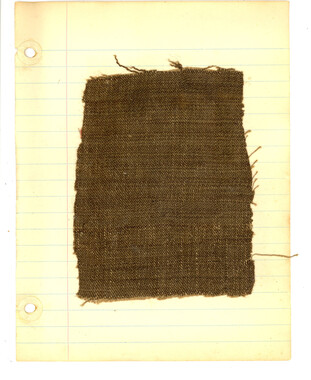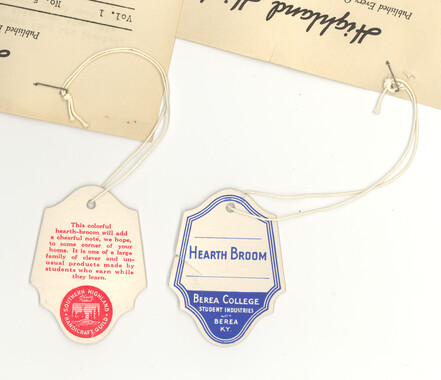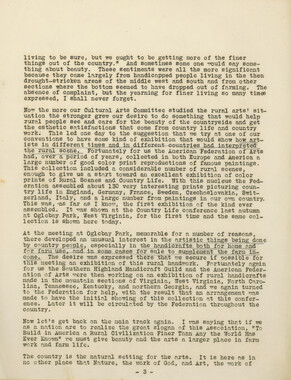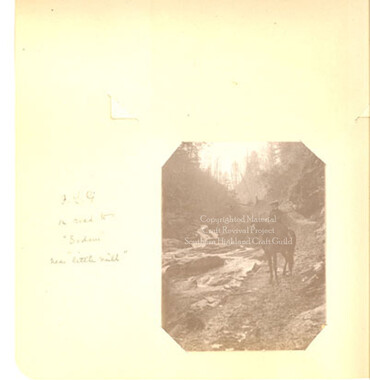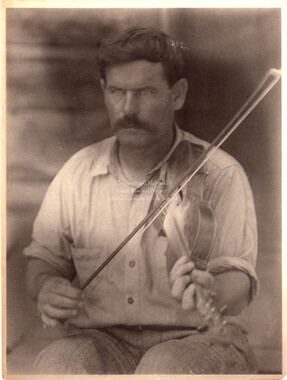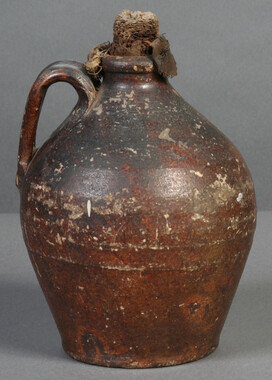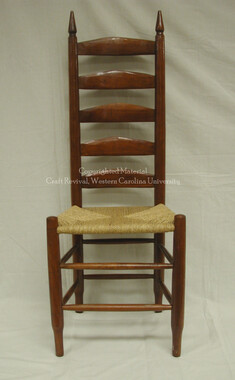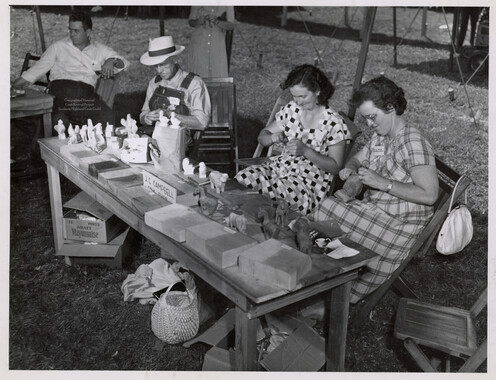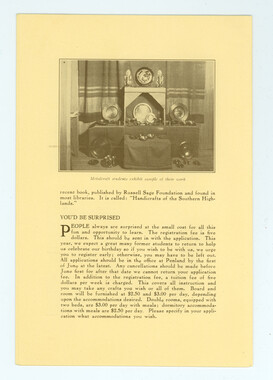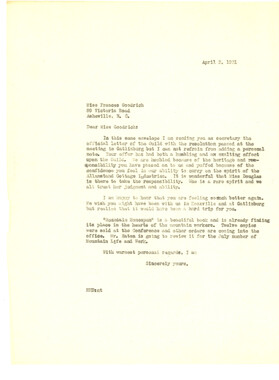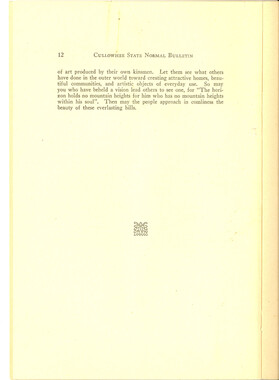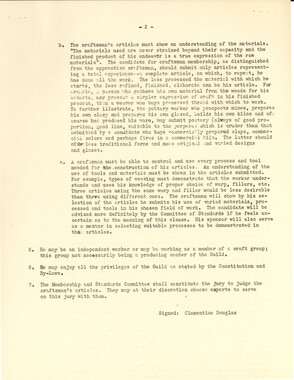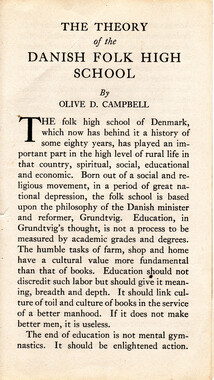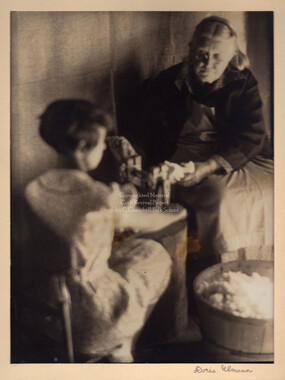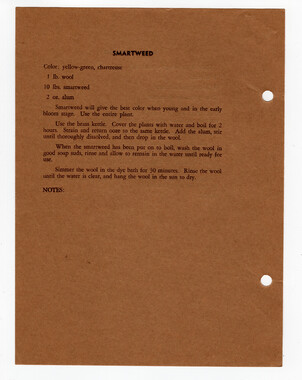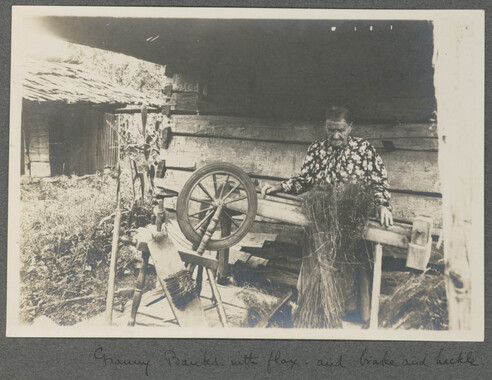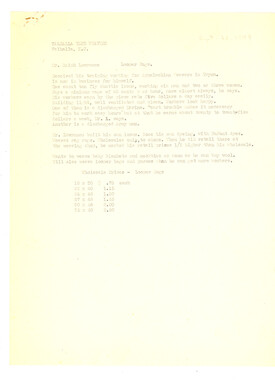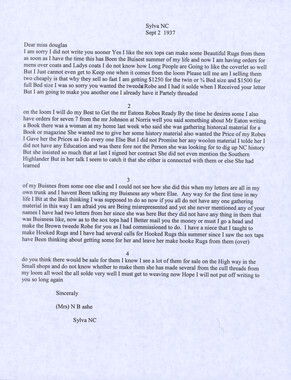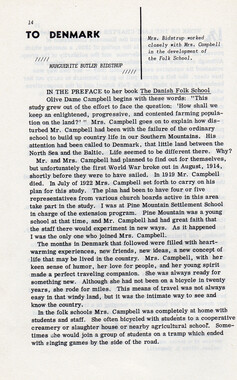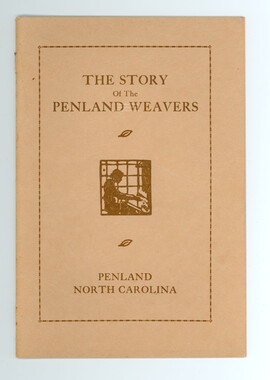Western Carolina University (20)
View all
- Canton Champion Fibre Company (2308)
- Cherokee Traditions (293)
- Civil War in Southern Appalachia (165)
- Craft Revival (1942)
- Great Smoky Mountains - A Park for America (2683)
- Highlights from Western Carolina University (430)
- Horace Kephart (941)
- Journeys Through Jackson (154)
- LGBTQIA+ Archive of Jackson County (15)
- Oral Histories of Western North Carolina (314)
- Picturing Appalachia (6679)
- Stories of Mountain Folk (413)
- Travel Western North Carolina (160)
- Western Carolina University Fine Art Museum Vitreograph Collection (129)
- Western Carolina University Herbarium (92)
- Western Carolina University: Making Memories (708)
- Western Carolina University Publications (2283)
- Western Carolina University Restricted Electronic Theses and Dissertations (146)
- Western North Carolina Regional Maps (71)
- World War II in Southern Appalachia (131)
University of North Carolina Asheville (6)
View all
- Allanstand Cottage Industries (62)
- Brasstown Carvers (40)
- Crowe, Amanda (40)
- Goodrich, Frances Louisa (120)
- Heard, Marian Gladys (60)
- Penland Weavers and Potters (36)
- Southern Highland Handicraft Guild (126)
- Southern Highlanders, Inc. (71)
- Stalcup, Jesse Bryson (46)
- United States. Indian Arts and Crafts Board (65)
- Western Carolina University. Mountain Heritage Center (6)
- Williams, Isadora (3)
- Appalachian National Park Association (0)
- Bennett, Kelly, 1890-1974 (0)
- Berry, Walter (0)
- Cain, Doreyl Ammons (0)
- Carver, George Washington, 1864?-1943 (0)
- Cathey, Joseph, 1803-1874 (0)
- Champion Fibre Company (0)
- Champion Paper and Fibre Company (0)
- Cherokee Indian Fair Association (0)
- Cherokee Language Program (0)
- Crittenden, Lorraine (0)
- Edmonston, Thomas Benton, 1842-1907 (0)
- Ensley, A. L. (Abraham Lincoln), 1865-1948 (0)
- Fromer, Irving Rhodes, 1913-1994 (0)
- George Butz (BFS 1907) (0)
- Grant, George Alexander, 1891-1964 (0)
- Kephart, Calvin, 1883-1969 (0)
- Kephart, Horace, 1862-1931 (0)
- Kephart, Laura, 1862-1954 (0)
- Laney, Gideon Thomas, 1889-1976 (0)
- Masa, George, 1881-1933 (0)
- McElhinney, William Julian, 1896-1953 (0)
- Niggli, Josephina, 1910-1983 (0)
- North Carolina Park Commission (0)
- Osborne, Kezia Stradley (0)
- Owens, Samuel Robert, 1918-1995 (0)
- Rhodes, Judy (0)
- Roberts, Vivienne (0)
- Roth, Albert, 1890-1974 (0)
- Schenck, Carl Alwin, 1868-1955 (0)
- Sherrill's Photography Studio (0)
- Smith, Edward Clark (0)
- Stearns, I. K. (0)
- Thompson, James Edward, 1880-1976 (0)
- USFS (0)
- Vance, Zebulon Baird, 1830-1894 (0)
- Weaver, Zebulon, 1872-1948 (0)
- Western Carolina College (0)
- Western Carolina Teachers College (0)
- Western Carolina University (0)
- Whitman, Walt, 1819-1892 (0)
- Wilburn, Hiram Coleman, 1880-1967 (0)
- Appalachian Region, Southern (1708)
- Asheville (N.C.) (1)
- Avery County (N.C.) (7)
- Buncombe County (N.C.) (293)
- Cherokee County (N.C.) (189)
- Clay County (N.C.) (89)
- Graham County (N.C.) (2)
- Haywood County (N.C.) (1)
- Henderson County (N.C.) (4)
- Jackson County (N.C.) (49)
- Macon County (N.C.) (51)
- Madison County (N.C.) (67)
- McDowell County (N.C.) (15)
- Mitchell County (N.C.) (113)
- Polk County (N.C.) (23)
- Qualla Boundary (510)
- Swain County (N.C.) (3)
- Watauga County (N.C.) (7)
- Yancey County (N.C.) (17)
- Blount County (Tenn.) (0)
- Great Smoky Mountains National Park (N.C. and Tenn.) (0)
- Knox County (Tenn.) (0)
- Knoxville (Tenn.) (0)
- Lake Santeetlah (N.C.) (0)
- Rutherford County (N.C.) (0)
- Transylvania County (N.C.) (0)
- Waynesville (N.C.) (0)
- Artifacts (object Genre) (134)
- Cards (information Artifacts) (13)
- Clippings (information Artifacts) (3)
- Crafts (art Genres) (622)
- Interviews (22)
- Letters (correspondence) (62)
- Manuscripts (documents) (68)
- Maps (documents) (7)
- Minutes (administrative Records) (37)
- Newsletters (47)
- Photographs (660)
- Postcards (58)
- Publications (documents) (148)
- Questionnaires (65)
- Sound Recordings (6)
- Speeches (documents) (2)
- Transcripts (18)
- Video Recordings (physical Artifacts) (6)
- Aerial Photographs (0)
- Aerial Views (0)
- Albums (books) (0)
- Articles (0)
- Biography (general Genre) (0)
- Depictions (visual Works) (0)
- Design Drawings (0)
- Drawings (visual Works) (0)
- Envelopes (0)
- Facsimiles (reproductions) (0)
- Fiction (general Genre) (0)
- Financial Records (0)
- Fliers (printed Matter) (0)
- Glass Plate Negatives (0)
- Guidebooks (0)
- Internegatives (0)
- Land Surveys (0)
- Memorandums (0)
- Negatives (photographs) (0)
- Newspapers (0)
- Occupation Currency (0)
- Paintings (visual Works) (0)
- Pen And Ink Drawings (0)
- Periodicals (0)
- Personal Narratives (0)
- Plans (maps) (0)
- Poetry (0)
- Portraits (0)
- Programs (documents) (0)
- Scrapbooks (0)
- Sheet Music (0)
- Slides (photographs) (0)
- Specimens (0)
- Text Messages (0)
- Tintypes (photographs) (0)
- Vitreographs (0)
- Appalachian Industrial School Records (7)
- Axley-Meroney Collection (2)
- Bayard Wootten Photograph Collection (20)
- Blumer Collection (5)
- Daisy Dame Photograph Album (5)
- Daniel Boone VI Collection (1)
- Doris Ulmann Photograph Collection (112)
- Elizabeth H. Lasley Collection (1)
- Elizabeth Woolworth Szold Fleharty Collection (4)
- I. D. Blumenthal Collection (4)
- Isadora Williams Collection (4)
- Jesse Bryson Stalcup Collection (47)
- John B. Battle Collection (7)
- John C. Campbell Folk School Records (80)
- John Parris Collection (6)
- Mountain Heritage Center Collection (4)
- Pauline Hood Collection (7)
- Pre-Guild Collection (2)
- Rosser H. Taylor Collection (1)
- A.L. Ensley Collection (0)
- Appalachian National Park Association Records (0)
- Bethel Rural Community Organization Collection (0)
- C.W. Slagle Collection (0)
- Canton Area Historical Museum (0)
- Carlos C. Campbell Collection (0)
- Cataloochee History Project (0)
- Cherokee Studies Collection (0)
- Frank Fry Collection (0)
- George Masa Collection (0)
- Gideon Laney Collection (0)
- Hazel Scarborough Collection (0)
- Hiram C. Wilburn Papers (0)
- Historic Photographs Collection (0)
- Horace Kephart Collection (0)
- Humbard Collection (0)
- Hunter and Weaver Families Collection (0)
- Jim Thompson Collection (0)
- Judaculla Rock project (0)
- Kelly Bennett Collection (0)
- Love Family Papers (0)
- Major Wiley Parris Civil War Letters (0)
- Map Collection (0)
- McFee-Misemer Civil War Letters (0)
- Norburn - Robertson - Thomson Families Collection (0)
- Qualla Arts and Crafts Mutual Collection (0)
- R.A. Romanes Collection (0)
- Samuel Robert Owens Collection (0)
- Sara Madison Collection (0)
- Sherrill Studio Photo Collection (0)
- Smoky Mountains Hiking Club Collection (0)
- Stories of Mountain Folk - Radio Programs (0)
- The Reporter, Western Carolina University (0)
- Venoy and Elizabeth Reed Collection (0)
- WCU Gender and Sexuality Oral History Project (0)
- WCU Mountain Heritage Center Oral Histories (0)
- WCU Oral History Collection - Mountain People, Mountain Lives (0)
- WCU Students Newspapers Collection (0)
- Western North Carolina Tomorrow Black Oral History Project (0)
- William Williams Stringfield Collection (0)
- Zebulon Weaver Collection (0)
- Artisans (339)
- Cherokee art (61)
- Cherokee pottery (73)
- Cherokee women (58)
- Education (4)
- North Carolina -- Maps (1)
- Pottery (132)
- Weaving -- Appalachian Region, Southern (274)
- Wood-carving -- Appalachian Region, Southern (313)
- African Americans (0)
- Appalachian Trail (0)
- Cherokee artists -- North Carolina (0)
- Cherokee language (0)
- Church buildings (0)
- Civilian Conservation Corps (U.S.) (0)
- College student newspapers and periodicals (0)
- Dams (0)
- Dance (0)
- Floods (0)
- Folk music (0)
- Forced removal, 1813-1903 (0)
- Forest conservation (0)
- Forests and forestry (0)
- Gender nonconformity (0)
- Great Smoky Mountains National Park (N.C. and Tenn.) (0)
- Hunting (0)
- Landscape photography (0)
- Logging (0)
- Maps (0)
- Mines and mineral resources (0)
- Paper industry (0)
- Postcards (0)
- Railroad trains (0)
- Rural electrification -- North Carolina, Western (0)
- School integration -- Southern States (0)
- Segregation -- North Carolina, Western (0)
- Slavery (0)
- Sports (0)
- Storytelling (0)
- Waterfalls -- Great Smoky Mountains (N.C. and Tenn.) (0)
- World War, 1939-1945 (0)
John C. Campbell Folk School, no. 17 (April 1935)
Item
Item’s are ‘child’ level descriptions to ‘parent’ objects, (e.g. one page of a whole book).
-
John C. Campbell Folk School published a series of newsletters from 1926 to 1950. Written like a letter from the school's director, the newsletter is a source of information about the classes and activities at the Folk School and their impact on the surrounding community. In this issue, a strong tie with the community is re-emphasized. The spirit of the Folk School is discussed, as well as how and what a Folk School learns and how it strives to achieve "a better social and economic order." Craft work has a practical, economic importance as well as cultural, as money earned from carving continues to sustain many families in the community. During this time of continuing economic stress, the writer comments on the value of hard work and potential unpleasantness that that lies behind the beauty and apparent ease of the school and its craftwork. The Mountain Valley Cooperative and the Farmers' Association have combined. The Creamery and Farmers' Association is managed by Lake Tuckwiller, and with the help of state employee, S.W. Mendenhall, aims to improve the quality of cream, poultry, and eggs. A chart breaks down economic relief provided by the school and the cooperatives, which illustrates the main purpose of the school "to help individuals, and through them, the section in which they live, to a fuller and richer life."
-
Object
Object’s are ‘parent’ level descriptions to ‘children’ items, (e.g. a book with pages).
-
John C. Campbell Folk School published a series of newsletters from 1926 to 1950. Written like a letter from the school's director, the newsletter is a source of information about the classes and activities at the Folk School and their impact on the surrounding community. In this issue, a strong tie with the community is re-emphasized. The spirit of the Folk School is discussed, as well as how and what a Folk School learns and how it strives to achieve "a better social and economic order." Craft work has a practical, economic importance as well as cultural, as money earned from carving continues to sustain many families in the community. During this time of continuing economic stress, the writer comments on the value of hard work and potential unpleasantness that that lies behind the beauty and apparent ease of the school and its craftwork. The Mountain Valley Cooperative and the Farmers' Association have combined. The Creamery and Farmers' Association is managed by Lake Tuckwiller, and with the help of state employee, S.W. Mendenhall, aims to improve the quality of cream, poultry, and eggs. A chart breaks down economic relief provided by the school and the cooperatives, which illustrates the main purpose of the school "to help individuals, and through them, the section in which they live, to a fuller and richer life."
-


